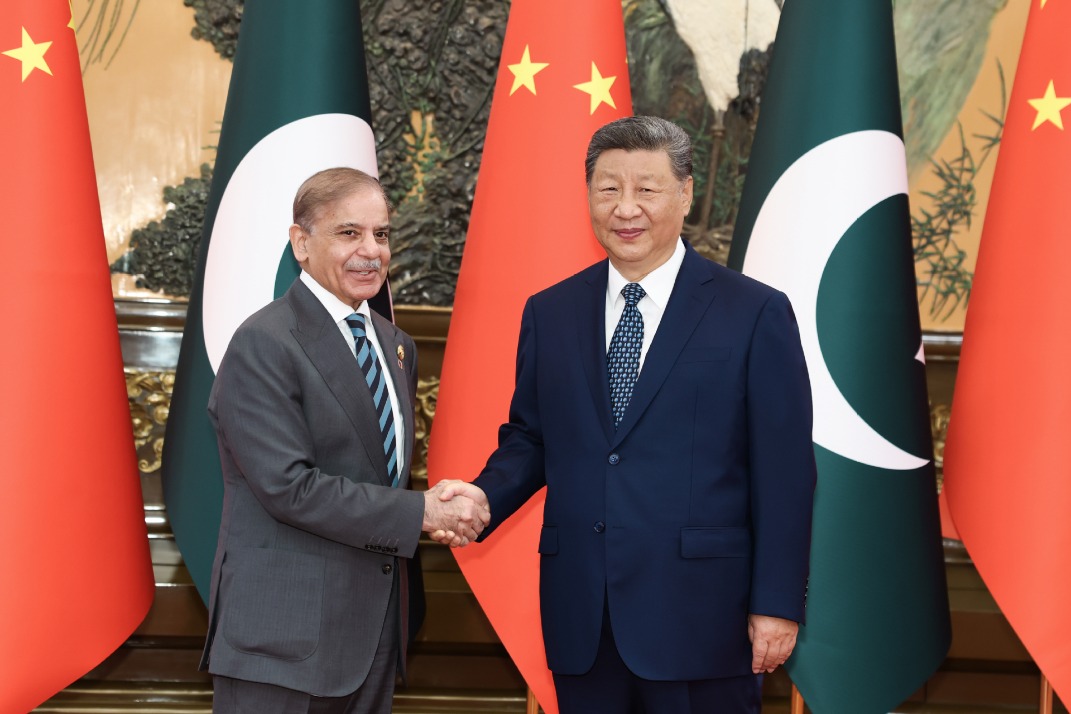CGT opening-up to spur China's bio-medical industry
By LI JIAYING | China Daily | Updated: 2024-11-28 10:21

As China is intensifying efforts to deepen international collaboration and investment in its high-tech medical sectors, frontier areas such as cell and gene therapy (CGT) will witness more growth opportunities with foreign participation, said industry experts.
Hoping to foster more shared opportunities in the country's growing healthcare sector, the Ministry of Commerce issued new measures on Nov 21 to support Suzhou, Jiangsu province, in further opening-up to advanced biopharmaceutical innovations.
The measures were detailed in a guideline to support Suzhou Industrial Park to become a pilot area for opening-up and innovation throughout the biopharmaceutical industry chain, encouraging qualified institutions in the Suzhou section of the China (Jiangsu) Pilot Free Trade Zone to conduct clinical research in frontier medical fields such as cell and gene therapy. Additionally, clinical studies in compliance with relevant regulations are also encouraged, the guideline said.
This is the first time that foreign companies in the region are allowed to conduct research and provide financial support for the cell and gene therapy sector, as they were previously restricted from participating in such areas since the implementation of the country's negative list for foreign investment 2021 edition.
This guideline came as part of the nation's broader strategy to further open up its frontier medical sectors, as Suzhou follows the first batch of four other regions in this area.
In September, the Ministry of Commerce and two other departments jointly issued a statement allowing foreign-funded enterprises to engage in the development of cell and gene therapy within designated zones in Beijing, Shanghai, and Guangdong and Hainan provinces. The enterprises are authorized to develop, register and commercialize their products, which can be deployed nationwide upon regulatory approval.
The recent relaxation of these restrictions has been hailed as a turning point for the CGT industry.
Lyu Lulu, CEO of Tianjin-based Juventas Cell Therapy Ltd, which already has cell therapy products on the market, described the policy change as a "lifesaving rain after a long drought". Lyu expressed hope in an earlier interview that the pilot policies would soon be expanded to more cities that have a strong foundation in CGT and attract more foreign investment to the sector.
Zhang Yu, chief scientific officer at Vcanbio Cell & Gene Engineering Corp, said this move signals the country's need for high-quality foreign investment to support its high-quality development. "The timely introduction of supporting measures will further boost global investor confidence in the Chinese market," Zhang said.
Zhang's view is echoed by Chen Li, an executive at Shanghai-based cell therapy company Neukio Biotherapeutics, who emphasized the broader significance of the pilot policy for the whole CGT industry.
"The inclusion of biopharmaceuticals on the foreign investment negative list previously hindered the sector's growth. If these pilots extend to the entire industry, it will effectively unshackle the sector, enabling more companies to attract foreign capital, talent and technologies," Chen said.
She said the policy shift is expected to accelerate China's CGT industry, positioning it to lead globally.
"CGT is the area within biomedicine where we are closest to international standards. We are now at the stage of running alongside global leaders, but whether we can take the lead will be determined in the next few years," she added.
The policy shift is already yielding tangible results. A slew of foreign-invested pharmaceutical companies, including Merck Life Science (Shanghai) Co Ltd and Phenotek Biotechnology (Shanghai) Co Ltd, have already updated their business licenses to initiate related operations in the country.
Tao Juhong, an executive from Merck Life Science (Shanghai) Co Ltd, said the updated business scope will allow the company to boost the local application of its advanced global technologies, facilitating more cutting-edge innovation in biopharmaceuticals and enhancing services for China's biomedical R&D needs.
"Previously, many CGT companies approached us about testing services, but restrictions on foreign companies prevented us from offering these. With the new policies, we can now introduce relevant technologies and initiate this business line here," Tao said.
























